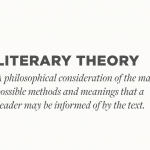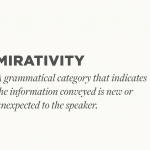
Textual criticism is an often misunderstood practice. If the Bible is supposed to be the inspired Word of God, how could discrepancies in the text exist? This excerpt from?Textual Criticism of the Bible?tackles this concern head-on. A properly aligned doctrine of Scripture recognizes the authority of the Bible while also acknowledging the human imperfections introduced over thousands of years of transmission.
A longtime Christian and student of the Bible posted the following comment about Romans 8:1:
?View the difference in versions here! You may want to add this to your NIV. I have an NIV Bible, but when I study, I always compare it to the KJV:
?Therefore, there is now no condemnation for those who are in Christ Jesus? (Rom 8:1 NIV).
?There is therefore now no condemnation to them which are in Christ Jesus, who walk not after the flesh, but after the spirit? (Rom 8:1 KJV).
Big difference, huh??
This comment concerns an issue that surfaces throughout the Bible: differences in Bible versions that may affect the meaning. While some Bibles include footnotes to indicate when such differences exist, these notes are not always helpful for readers with no background knowledge of the preservation and transmission of the Bible from its original authors to the current day.
What should we think when we find disagreement between English versions? Which translations are right? Why would translators ?change? the biblical text? How can readers make good decisions about these discrepancies between versions?
These questions are important for every student of the Bible, and textual criticism contributes part of the answer.
Many people are uncomfortable with the idea that discrepancies exist in the biblical text. Why wouldn?t God have preserved his Word with greater care? How can we really know what God has said when there are variations in the wording? These are important questions for people who believe the Bible to be God?s inspired, authoritative Word. To answer them, we must consider what Christians believe and have believed about the nature of the Bible?our doctrine of Scripture.
The doctrine of Scripture has developed over time, as have all theological doctrines. Early on, the church fathers recognized variants among their biblical manuscripts. However, they did not seem to view these variants as damaging to Scripture?s authority. Differences in texts became more problematic after the advent of the printing press. For the first time, Christians were able to have a fixed text?but which text should be fixed? Later, as European scholars in the eighteenth century sifted through a plethora of newly discovered biblical manuscripts, they began to understand how the biblical text had developed over time.
By the nineteenth century, scholars had begun to engage in textual criticism with the goal of determining the ?original text.? At the same time, some biblical scholars questioned the veracity and historicity of the Bible. This convergence of questions and scholarly investigation led many critical scholars to dismiss the Bible as a flawed, ancient document with no value for modern faith and practice. In response, Christians rose to defend the Bible. In the process, though, some conservative Christians came to view the discipline of textual criticism as ?another scholarly weapon in the many-sided attack against Scripture.?
Most Christian scholars believe that while God did inspire the content of Scripture, he also chose to entrust human authors with its composition and copyists with its transmission. Even though God superintended the preservation of Scripture, he was pleased to reveal his word through human imperfection. When we consider that the Bible was transmitted by hand and in harsh climates for thousands of years, we can only marvel that, even though there is variation in the text, most of these variants are insignificant copying errors, and nearly all variants involve no significant doctrinal issues.
Ultimately, we can have confidence that the Bible we use reflects an extraordinary degree of accuracy and integrity. The variants in biblical manuscripts are not challenges to the authority of God?s word. Rather, they reflect God?s use of human instruments in the divine process of authoring and preserving his sacred text. Through the efforts of textual critics, God continues to employ human agents in preserving his Word.
Related Reading:
What Is Textual Criticism, and Why Is It Necessary? ? LogosTalk blog
The Difference Between Textual Criticism and Translation ? LogosTalk blog






